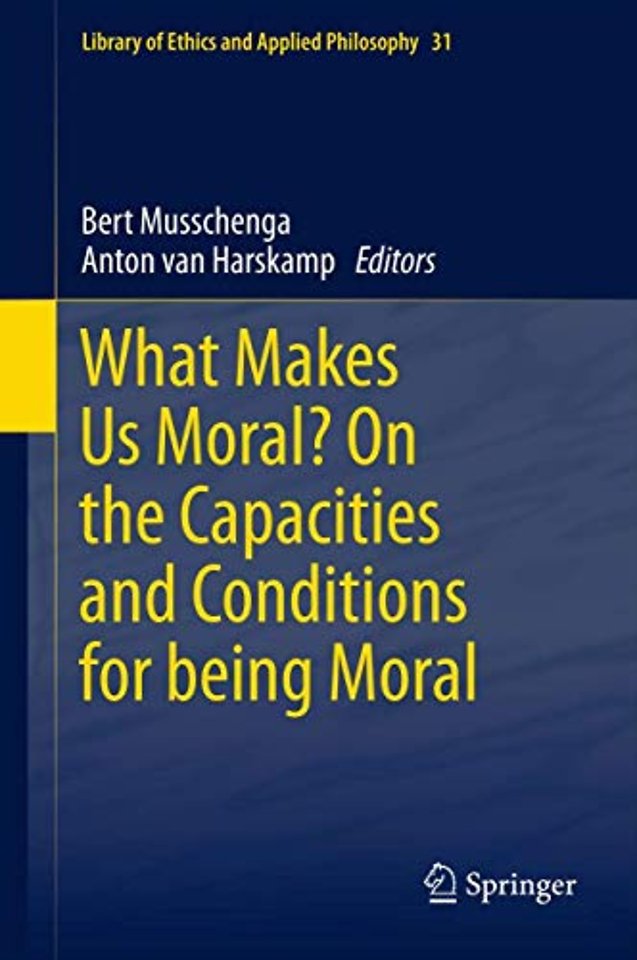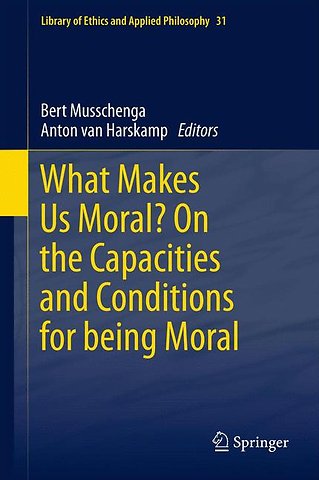<p>Preface</p><p> </p><p>Bert Musschenga: What makes us moral? An introduction</p><p> </p><p>Part I: Morality, evolution and rationality</p><p> </p><p>Alejandro Rosas: Rationality and deceit; Why rational egoism cannot make us moral</p><p>Katharine Browne: Two problems of cooperation</p><p>Catherine Herfeld and Katrien Schaubroeck: The importance of commitment; How Harry Frankfurt’s concept of care contributes to Rational Choice Theory</p><p>Markus Christen and Thomas Ott: Quantified coherence of moral beliefs as predictive factor for moral agency</p><p> </p><p>Part II: Morality and the continuity between human and nonhuman primates</p><p> </p><p>Bert Musschenga: Animal morality and human morality</p><p>Florian Cova: Two kinds of moral competence; Moral agent, moral judge</p><p>Andrés Luco: Humean moral motivation</p><p>Harry Wels: Whispering empathy; Transdisciplinary reflections on research methodology</p><p> </p><p>Part III: Nativism and non-nativism</p><p> </p><p>Jessy Giroux: The origin of moral norms and the role of innate dispositions</p><p>Carsten Fogh Nielsen: It’s complicated – Moral nativism, moral input, and moral development</p><p>Julia Hermann: Learning to be moral</p><p>Gerben Meynen: Why mental disorders can diminish responsibility; Proposing a theoretical framework</p><p>Darcia Narvaez: Natural morality, moral natures and human flourishing</p><p> </p><p>Part IV: Religion and (im)morality</p><p> </p><p>Stephen Maitzen: Atheism and the basis of morality</p><p>Anton van Harskamp: What makes the martyr (im)moral?</p><p>Bettine Siertsema: Moral lessons from monstrosity; The Kindly Ones and the reader</p><p> </p><p> </p><p>Part V: Morality beyond naturalism</p><p> </p><p>David Rose: Society and the origin of moral law: Giambattista Vico and non-reductive naturalism</p><p>Adam Seligman: Enacting the moral: concrete particularity and subjunctive space</p><p> </p><p>About the authors</p><p> </p><p>Index of names and subjects</p><p>

